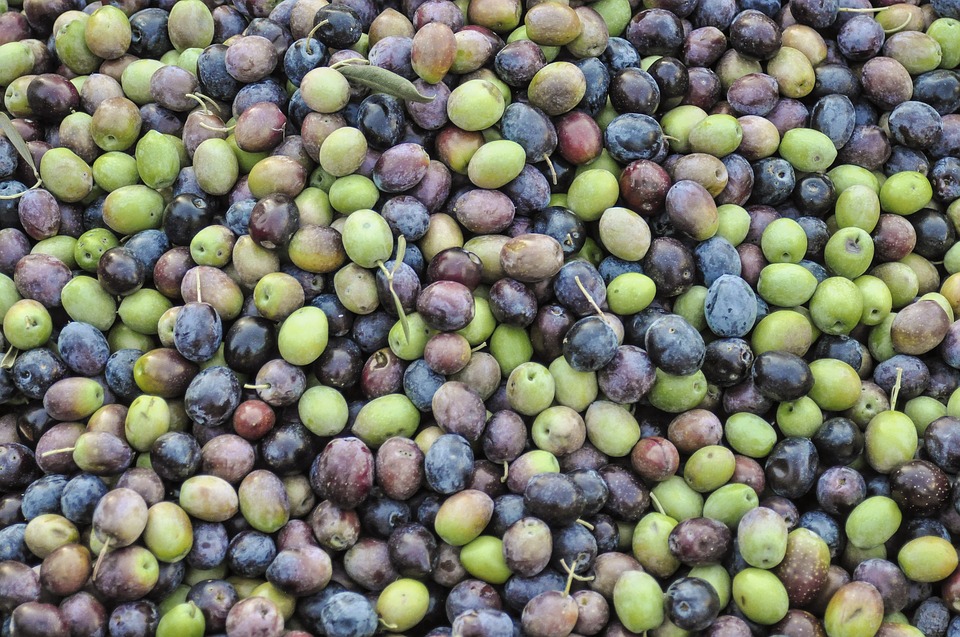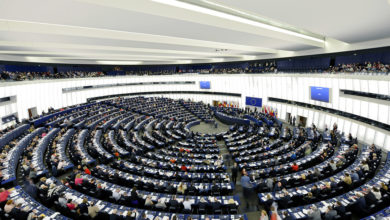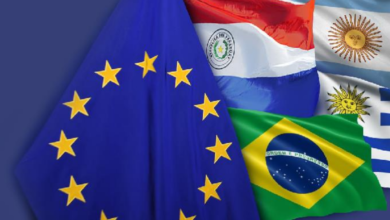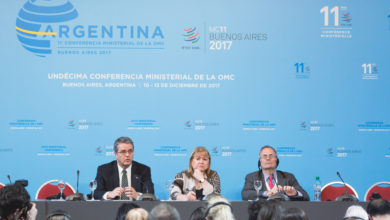
By attacking Spanish ripe olives, the US Department of Commerce risks setting a precedent that could undermine the undistorting nature of decoupled aid, the cornerstone of the CAP and the WTO. However, wanting to retort by seizing the Dispute Settlement Body of the WTO would be a strategic mistake for the European Union: the neutrality of decoupled aid is difficult to argue in practice and it would be difficult to find allies, given that no other country uses this type of inefficient aid. Paradoxically, this episode can be a chance for the CAP if the end-to-end defense of decoupling gives way to an aggiornamento likely to overhaul the CAP and reposition the European Union in agricultural multilateralism.
On July 24th will be an important milestone in the history of the Common Agricultural Policy. Paradoxically, it will not result from a decision of the Parliament or the European Council, but will come from the United States International Trade Commission1. Indeed, the latter will have to rule on the investigation conducted by the Department of Commerce following a complaint by representatives of American producers of ripe olives against imports at a broken price from Spain.
According to the results of the investigation, Spanish olives would arrive in the United States at a price 20.04% lower than their “fair value” and benefit from a subsidy of 14.75%2. In the event of confirmation by the International Trade Commission, provisional anti-dumping and anti-subsidy customs duties put in place at the end of last year would be confirmed and enhanced.
An explosive subject for the European Union
Admittedly, it is not certain that the International Trade Commission, independent and bipartisan agency, confirms the results of the investigation: it was recently against the US government which wanted to take drastic measures – taxes at 292% – against Bombardier and its civil aviation activities based in Great Britain3. But after steel and aluminum, attacking Spanish olives could affect the entire CAP.
In fact, olive production benefits mainly from the decoupled aid scheme, which accounts for two-thirds of the CAP budget and concerns almost all agricultural areas in Europe. The attack on the olives could thus constitute an additional step – and perhaps decisive step – in questioning the decoupling doctrine, which is the cornerstone of the WTO rules and at the basis of the reform trajectory of the CAP since 1992.
By invoking anti-dumping and anti-subsidy measures against European decoupled aid, the United States would question the classification of agricultural aid at the WTO and, in particular, the famous green box, which is not subject to reduction, which includes decoupled aid. These are considered to have a zero or low effect on production and trade on the basis of their own characteristic (no production required, paid independently of price or level of production, etc.) and with no regard to their effects on the behavior of producers. Numerous research studies have also highlighted the effects of decoupled subsidies on farmers’ labor supply and entry and exit conditions in the sector, but also on their investment capacities and their attitude towards at risk.
Hide that breast that I can not see!
If the doctrine of decoupling was engraved in the marble of the WTO by Europeans and Americans in the early 1990s, the latter quickly freed themselves and ended decoupled aid in 2014. Questioning the absence of a distortionary effect of the decoupled aids will not have an impact on their agricultural policy.
This is not the case for the European Union which, “as a virtuous but isolated leader” continues, as it should, to defend this doctrine in international fora as in its agricultural policy. Despite the inefficiency of this type of aid to be a response to agricultural crises (aid is paid regardless of price) and to accompany the environmental and energy transition (aid is paid regardless of production), the European strategy , and the latest Commission proposals for the post-2020 CAP attests to this, is to maintain the status quo: decoupling must remain the mantra of the CAP in the name of compliance with WTO rules.
Advocates of the current focus of the CAP are thus in a delicate situation. After justifying for almost three decades a series of reforms in the name of compliance with WTO agricultural rules, they are now attacked by the very people with whom they wrote them. Certainly, the martingale was enticing: decouple aid to allow markets to find their balance and thus, after a transitional period, remove a direct support that would have become useless. But after a global food crisis that has recalled the reality of the structural instability of agricultural markets, and while aid accounts for almost half of the income of European farmers, it is time for Europe to emerge from postures and cynicism to challenge the doctrine of decoupling.
Perseverare semper diabolicum
Yet, within their good right, some voices are demanding that the EU lodge a complaint with the WTO against the Americans in case of maintenance of taxes4 ; and Commissioner Malmström publicly raised this possibility5. As pointed out by Tomas Garcia Azcarate, the risks are nevertheless significant that the WTO panel does not discuss the good respect of green box criteria but the existence or not of the distortive effects of decoupled aid6. Moreover, the EU would surely have some difficulties in finding allies in this procedure to protect a type of aid that it is the only one to use. Also, in the event of confirmation by the International Trade Commission, the EU will find itself in a dilemma: the extremism of guardians of the temple or openness to a political aggiornamento.
In other words, either the EU engages in a panel at the WTO to defend decoupled aid even though they are under attack, including internally, for their inefficiency in the face of crises and environmental transition with a non-zero risk of failure, which could then provoke a crisis of a nature to question the CAP itself if no alternative is sufficiently thought out beforehand.
Either the EU chooses to step out of its comfort zone, assumes that its trajectory of CAP reforms was based on an unverified assumption (the efficiency of agricultural markets) and agrees to reopen multilateral discussions to reform the international discipline in support for agriculture and move the Doha Round out of hibernation.
This episode of Spanish ripe olives, far from being anecdotal, could therefore become the triggering of a questioning of the CAP as it has become and as it is getting bogged down with the latest proposals of the Commission.
In the end, President Trump’s America may be serving an encapsulated CAP in the stalemate of decoupling, by offering the European Union external pressure to help it challenge its past reform strategy. But, conversely, if the European Union fails to forge a new consensus on agriculture, the American attack could be the last assault on a weakened and divided agricultural Europe. Also, stubbornness in bringing the case to the WTO would be a major strategic mistake for the construction of Europe; the solution is to start now a real in-depth reform of the CAP that allows the EU to redefine its position on multilateralism in agriculture.
Jacques Carles, President of Agriculture Strategies
Frédéric Courleux, Director of studies of Agriculture Strategies
1 Voir le site internet : https://usitc.gov/
2 https://www.commerce.gov/news/press-releases/2018/06/us-department-commerce-finds-dumping-and-subsidization-imports-ripe
3 https://www.bbc.co.uk/news/uk-northern-ireland-42825916
4 Voir l’article d’Euractiv où le think tank Farm Europe défend cette position par la voix de Joao Pacheco, ancien directeur général adjoint de la DG Agri : https://www.euractiv.fr/section/commerce-industrie/news/us-questions-caps-raison-detre-with-spanish-olives-investigation/
5 https://www.commerce.gov/news/press-releases/2018/06/us-department-commerce-finds-dumping-and-subsidization-imports-ripe
6 http://tomasgarciaazcarate.com/post/us-antidumping-and-antisubsidy-investigations-on-spanish-olive-a-potential-trade-153632












